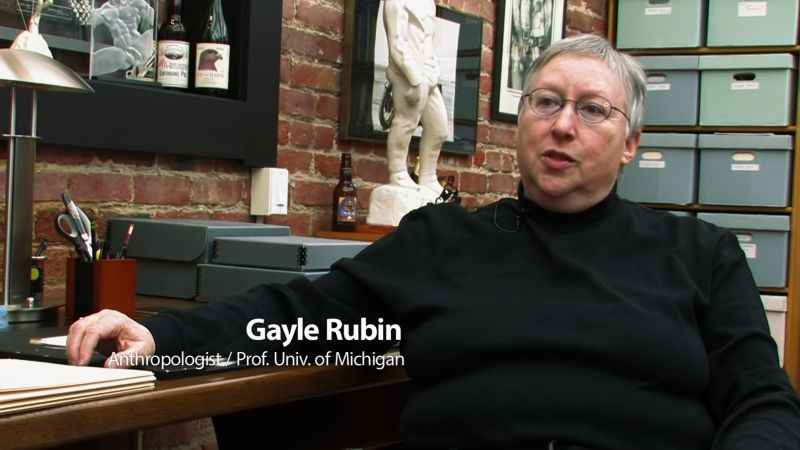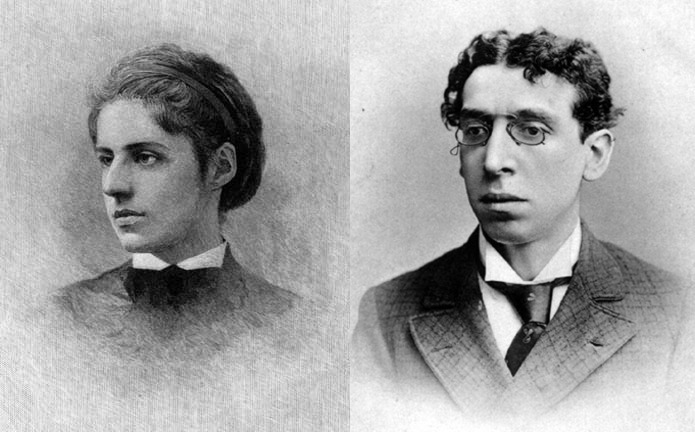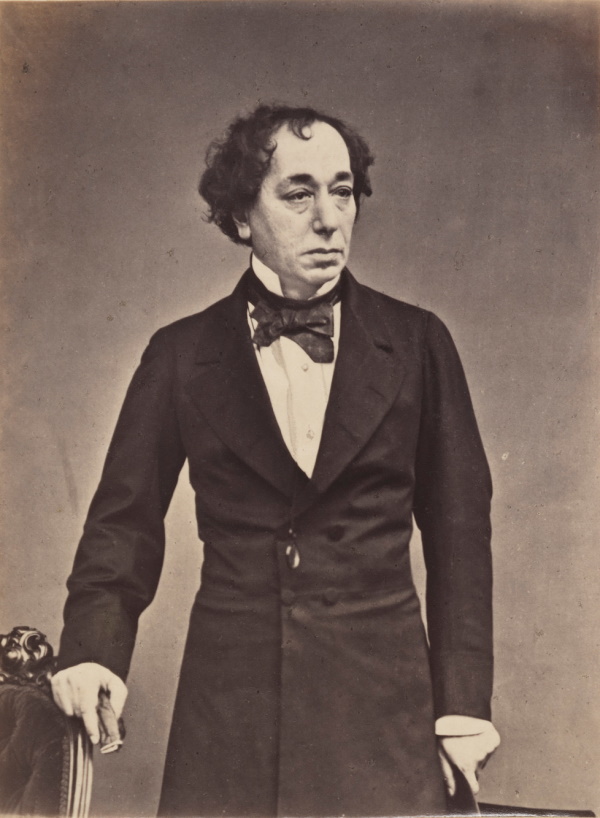Jewish Control of U.S. Presidents #2 — Ronald Reagan
Similar to an addict who must bottom out to a recognition of the full horror and misery of life before turning sincerely to recovery, so we must understand the full depths of Jewish power over us before we can really turn our situation around. In #1 of this series we examined the Jews who gained control over U.S. President Woodrow Wilson, leading to the placement on the Supreme Court of the first Jew, the imposing of the disastrous Federal Reserve system dominated by Jewish bankers, and entry into World War I to the profit and advantage of Jews.
Many other Presidents can be chosen almost at random to continue this examination, but we will look next at Ronald Reagan because it is estimated that around 1980 was the culmination of the rise of Jewish power in America—when they finally achieved dominance over the long-held power of White Anglo-Saxon Protestants (WASPs).
Within the past 60 years, the Jews have risen to elite status in the United States, totally displacing the traditional WASP elite who used to run the country. Their infiltration of the highest offices of every American institution, their extreme over-representation in every profession, their control of the news and entertainment media, their over-representation in the universities, is even more pervasive in America today than in Weimar Germany…
But unlike the WASP elite whom they have displaced, the Jews have become what Professor Kevin MacDonald, in his trilogy of books on Jewish culture, calls a “hostile elite.” The old WASP elite never lost its sense of noblesse oblige toward the ordinary people of America. They were, after all, of the same religion and of the same ethnic origin, and they felt a sense of responsibility for the general welfare of all of their fellow citizens. Our new Jewish elite is different. They feel no identity with ordinary Americans, only contempt, and they concern themselves only with “what is good for the Jews.”
Not only does this new Jewish elite have no empathy for the traditional European majority in America, they actively work to undermine it…
-Benton Bradberry, The Myth of German Villainy, 2012, pp. 434–5
The election of Ronald Reagan in 1980 marked a milestone in this advance of Jewish power, and arguably could be viewed as the transition time. Reagan served as the 40th president during two terms from 1981–1989, with Vice President George H.W. Bush. We will see the role Jews played in Reagan’s trajectory, and Reagan’s receptiveness to Jewish power.
Jewish Media Mafia Origins
Reagan attended Eureka College in Illinois, the state in which he was born. There he acted in school plays. “Upon graduation, he became a radio sports announcer. A screen test in 1937 won him a contract in Hollywood. During the next two decades he appeared in 53 films.” According to Dan Moldea, researcher and author on organized crime, in his The Corruption of Ronald Reagan:
Reagan came to Los Angeles in 1937 to make motion pictures, and, in 1940, MCA bought out his talent agency. Lew Wasserman became Reagan’s personal agent; he negotiated a million-dollar contract with Warner Brothers on Reagan’s behalf. In 1946, Wasserman became the president of MCA, and the following year, Reagan, with his film career already in decline, became the president of the Screen Actors Guild.
MCA “was founded in 1924 by Jules Stein, a Chicago ophthalmologist who quickly became friendly with the local underworld,” according to Moldea. He will not state the obvious, that Stein was Jewish, nor that the “underworld” Stein allied with also included Jewish elements. Lew Wasserman who was Reagan’s personal agent and had become president of MCA was also of course Jewish.
Every facet of Reagan’s life, from his careers in acting and politics to his financial successes, were directed by MCA, which, with the help of the Mafia, was the most powerful force in Hollywood from the mid-1940s until the Bronfman family purchased the company in 1995. The Bronfman family was/is also Jewish, as was the Hollywood Mafia as we will see.
It may seem tedious to identify so many of the names in this investigation as Jewish, but that is something Moldea and some other sources we refer to will not do, making it significant obscurantism. Revealing the Jewish identity of those who created and controlled Reagan the president will assist us in a clear identification of the enemy of America and its people, and inform an effective self-defense.
Lew Wasserman’s career in entertainment and organized crime lasted 70 years, starting as an usher at a movie theater in Cleveland in 1933. At the peak of his career as Chairman of MCA in 1973, Variety magazine called him “Hollywood’s ultimate mover and shaker.” Wasserman’s Wikipedia entry references Moldea, and says:
Wasserman was the link between the Mafia, the Hollywood film industry and Reagan, who obtained very lucrative deals as an actor with Wasserman as his agent. By 1947, just after Al Capone died, and still with the help of his alliance with the underworld, Wasserman was instrumental in helping Reagan to become president of the Screen Actors Guild, which kicked-off Reagan’s rise to power. Reagan allowed MCA to work both as a producer as well as an agent, which enabled the Mafia to earn a huge income.
Another Jewish mobster in Hollywood was Sidney Korshak. A Vanity Fair profile on Korshak titled “The Man Who Kept the Secrets” states:
Wasserman’s rise had brought him in contact with the underworlds of both Cleveland and Chicago; MCA’s ascendance in Hollywood in the late 30s was simultaneous with the Chicago Mob’s infiltration, through union control, of the movie business, and with Sidney Korshak’s own move to the Coast. Wasserman was perhaps the most powerful and revered figure in Hollywood, and Sidney Korshak was perhaps his closest friend. … it was Glaser who introduced [Jules] Stein to Korshak. It seems likely that it was Stein who then introduced Wasserman to Korshak.
Joe Glaser was another Jew of Russian origin involved with MCA and the Hollywood Jewish Mafia. Here is a good summary of the Hollywood/Jewish Organized Crime Syndicate environment at the time:
“Twentieth-century organized crime in America was a primarily Jewish-Italian coalition that shared the sensibilities but lacked the ethnic purity of the true Sicilian Mafia.”
Reagan Groomed for President by Jews
A definitive research work by Dan Moldea titled Dark Victory: Ronald Reagan, MCA and the Mob recounts:
In the late 1940s Hollywood shifted its attention away from the Mafia’s infiltration of the film industry to its infiltration by Communists [i.e., another group of Jews]. Ronald Reagan, a young actor who was represented by Wasserman and MCA, was a star player during the investigations and hearings by the U. S. House Un-American Activities Committee (HUAC), serving as both an informant for the FBI and a friendly witness for the committee.
After his performance in the war against communism … Reagan was rewarded by being elected as President of the Screen Actors Guild (SAG), serving for five consecutive one-year terms. (p. 16)
As SAG President, Reagan allowed a violation of rules that was immensely profitable to MCA:
“In 1952, during his fifth term, Reagan engineered a ‘blanket waiver,’ exempting MCA from SAG rules prohibiting a talent agency from also engaging in film production.” Earlier Moldea writes: “decisions made by SAG while under Reagan’s leadership became ‘the central fact of MCA’s whole rise to power.’” Already in the early 1950s Reagan and MCA were in a mutually beneficial relationship, but
soon after Reagan’s tenure as SAG President ended, he found himself in serious financial trouble. With his film career on the skids, Reagan was saved by MCA with jobs in Las Vegas and on television. …the preferential treatment Reagan received from MCA was a payoff for services rendered while Reagan was President of SAG. (Ibid.)
By 1959 Reagan was reelected to a sixth term as SAG President, this time to oversee a strike of the actors against major studios. Reagan resolved the strike eventually with the assistance of Jewish Mafia attorney Sidney Korshak. Reagan’s own role as President was against SAG rules, since having become a producer with Jewish support, he was disallowed from being President. He refused to recuse himself.
Jews Place a California Governor
Jules Stein was also known to be “active in Republican politics,” and influenced Reagan to shift to the Republican party after the “break up” of MCA. During Reagan’s campaign for California Governor, “Among the guiding forces in the shaping of Reagan’s political philosophy were MCA’s Jules Stein and Taft Schreiber. … [S]everal of Reagan’s campaign financiers (p. 18) were close friends and associates of Sidney Korshak.” (p. 18) Only Schreiber is unconfirmed as Jewish. Reagan won the Governorship in 1966 and again in 1970, with Jewish Hollywood Mafia help. Reagan’s fundraising and campaign management “was arranged and financed by Jules Stein and a group of conservative southern California businessmen.” (p. 252) “Considering all the help Reagan received from Stein and Schreiber, the standing joke in Hollywood was that ‘MCA even had its own Governor.’” It was no joke that Jews had their own Governor in California.
Early in Reagan’s Governorship, “Wasserman had become the most powerful legitimate force in Hollywood.” Reagan paid back the Hollywood Mafia Jews who had placed him in the Governor role:
To help the film industry, Governor Reagan pushed legislation through the California State assembly giving all Hollywood studios, including MCA-Universal and 20th Century-Fox, huge breaks on their film libraries. The tax savings at each studio was estimated to be worth a minimum of $3 million. (p. 266)
Jews such as Stein and Korshak arranged real estate deals for Reagan at values well above market rates, making him a multi-millionaire through what was essentially Jewish money laundering bribery deals. Hollywood Mafia Jews controlled Reagan as far back as 1966 at the beginning of Reagan’s time as role as California governor, by funding and running his campaigns, and bribing him through cutting real estate deals. Reagan reciprocated by passing legislation in the California legislature profiting Jewish Hollywood Mafia moguls.
President Reagan, Actor for Jews
In November 1979, Reagan kicked off his presidential campaign with a speech at the New York Hilton Hotel. Earlier that year, Nevada Senator Paul Laxalt, with extensive Las Vegas Mafia ties, including the Jewish Mafia through the figure of Moe Dalitz, formed the Reagan For President Committee. Laxalt was quoted openly in New York Times Magazine as saying “Moe Dalitz is a friend of mine.” Dalitz and the Jewish Mafia contributed large sums to Reagan’s campaign. Reagan’s platform was to be limited government regulation, low taxes and limits on government spending. Reagan’s main campaign manager was William Casey, corrupt businessman and lawyer who had been lead counsel at the primarily Jewish Bear Stearns investment bank where Jeffrey Epstein also worked, before its bankruptcy. The Jew Alan Greenberg, who recruited and advanced Epstein, was CEO of Bear Stearns at the time of its collapse. Casey went on to be Reagan’s CIA Director. (Moldea, p. 310–11)
In her great chronicle One Nation Under Blackmail, Whitney Webb details Reagan’s CIA Director’s relations with the Jewish Mob:
[William] Casey and [Roy] Cohn were close friends, and, during the 1980 Reagan campaign, Casey “called Roy almost daily.” … [I]n the immediate aftermath of Reagan’s electoral victory, Cohn … took (Adnan) Khashoggi on as a client. Epstein would follow suit, shortly after his resignation from Bear Stearns. … Casey had been the legal representative of Bear Stearns during Epstein’s time there up until several weeks before Epstein’s abrupt resignation, when Casey became CIA Director. (Webb, ppg. 650–51)
Roy Cohn was of course the Jewish mob attorney in New York City who ran his own child-raping blackmail rings, similar to Epstein. Epstein resigned from Bear Stearns on March 12, 1981, less than a month after Reagan took office. The timing coincided with an insider trading crime at the bank that involved the Jewish mob family the Bronfmans. (Webb, ppg. 18–23)
By August 1980 Reagan gave a campaign speech in Ohio before the Teamsters Union, whose vice-president at the time was Jackie Presser, Jewish, who went on to become the Teamsters’ President in the Reagan years. Through his Jewish father, convicted labor racketeer William, Jackie had close associations with Jewish mobsters Moe Dalitz, Allen Dorfman and Sidney Korshak. (Moldea, p. 315)
Lew Wasserman, the movie mogul who dominated the Los Angeles business scene, worked to restrict funding for Reagan’s competitor, incumbent Jimmy Carter, and was unobtrusively supporting Reagan. (Moldea, pp. 316–17) “Wasserman was also one of the driving forces and chief political patrons of Ronald Reagan, making him a ‘kingmaker’ for several U.S. Presidents during his lifetime,” including Carter. (Moldea, p. 309) Reagan appointed Presser to be his “chief economic advisor” on the transition team, and Presser influenced the selection of other Reagan officials, including Labor, Treasury and others, which would have jurisdiction to (not) investigate Teamster mob connections. (Moldea, p. 317)
Reagan tried to appoint William McCann as ambassador to Ireland, but in the confirmation hearings it became known that McCann had been associated with convicted stock and insurance fraudster Louis Ostrer, who stole funds from the Laborers Union account (Moldea, p. 319). I found no direct evidence Ostrer was Jewish, but his name association with the clearly Jewish Harry Ostrer who conducted the genetic studies that showed Jews are a genetically distinct group, makes it likely.
When MCA founder and Wasserman mentor Jules Stein died on April 29, 1981, President Reagan was one of the seventy-six honorary pallbearers (Moldea, p. 326).
For twenty years including during the two Reagan presidencies, Wasserman’s second in command of MCA was President and Chief Operating Officer Sidney Scheinberg, Jewish. Scheinberg mentored and groomed Jewish movie maker Steven Speilberg, and oversaw the holocaust promotion block-buster Schindler’s List (based on a fictional novel). Also appointed to the MCA board was the Jew Robert Strauss, who was the Chairman of the Democratic National Committee. Later Strauss went on to advise Reagan on the replacement of his controversial Chief of Staff Donald Regan with Republican Senator Howard Baker. Baker later had a close working business relationship with Israeli super-spy Robert Maxwell (Hoch), in the Newstar investment and advisory corporation, investing in privatized assets of the former Soviet Union (Webb, p. 191).
We could provide more evidence from these excellent sources for Jewish power and for Jewish organized crime control over Ronald Reagan in his presidential campaigns, transition teams, and two presidential terms. Let what we have seen already suffice to establish its factual basis.
Reagan’s Gifts to Jews
Next we will examine just some of the many benefits Reagan bestowed upon Jews during his governorship and presidency. Our source will be the Jewish Virtual Library entry on Reagan, which provides a convenient list:
- California had the second largest Jewish population in the U.S., and served their interests as Governor
- Resigned in protest from the Lakeside Country Club because it declined to admit a Jew [probably a Jewish mobster]
- “…strongly supported Israel during the Six-Day War and was the featured speaker at a pro-Israel rally in the Hollywood Bowl in Los Angeles.”
- Passed a law that banks were authorized to purchase State of Israel bonds
- Wrote a weekly column in the Jewish Press newspaper, for an audience of mostly Orthodox Jews
- Jews not yet mentioned but active in both gubernatorial and presidential campaigns and administrations: Theodore Cummings, Albert Speigel (L.A. businessman, head of the Jewish Coalition for Reagan), Max Fisher , Maxwell Rabb , George Klein, Gordon Zacks.
- “Neo-conservative Jewish intellectuals, such as Eugene V. Rostow, Max Kempelman, Irving Kristol, and Norman Podhoretz were active in the Reagan election campaign and many became influential in the Reagan Administration.” Irving Kristol along with Leo Strauss was a known Communist Trotskyite who gave rise to today’s “Neo-Con” Jews, including his son William.
- Brooklyn Jews voted strongly for Reagan, an unprecedented split along a “religious” divide.
- After seeing propaganda footage of the “liberation” of German camps, referenced it in a Yom HaShoah (Holocaust Remembrance Day) speech from the White House in 1981.
- Israel First policy: support the Israeli military and recognize it as “the only remaining strategic asset in the region on which we can rely,” opposed the PLO and rejected a two-state solution, and provided “strong support for Israel as America’s most reliable ally in the Middle East.”
- Regarding Israel’s illegal settlement activity in the West Bank and Gaza, Reagan’s consistent position was: “the settlements are not unlawful.”
- Instructed US delegates to the UN to veto any resolution characterizing Jerusalem as “occupied territory,” and authorized the only veto cast against the UN Security Council resolution condemning the mass shooting of Palestinian worshipers by an Israeli gunman at the Dome of the Rock in 1982, on the grounds that the resolution contained a paragraph declaring Jerusalem occupied territory.
- In a speech of September 1, 1982, announced the “Reagan Plan” for peace in the Middle East, which denied independent statehood for Palestine, and Jerusalem to remain undivided and its jurisdiction ambiguous.
- Through negotiations with U.S.S.R. President Gorbachev, conditions in Ethiopia changed to allow Jews there to move to Israel in 1985, in Operation Moses, “with some covert U.S. assistance.”
- Steady support for Israel was “somewhat marred” by his visit in 1985 to the Bitburg Cemetery in Germany, where SS officers were buried, “who committed the most heinous crimes.” Yet this “caused no lasting damage to the cause of remembrance.”
Regarding the rise of the neocons during Reagan’s presidency:
The fault lines between neoconservatives and paleoconservatives were apparent during the Reagan administration in the battle over the appointment of the head of the National Endowment for the Humanities, eventually won by the neoconservative Bill Bennett. The campaign featured smear tactics and innuendo aimed at M. E. Bradford, an academic literary critic and defender of Southern agrarian culture who was favored by traditional conservatives. After neocons accused him of being a “virulent racist” and an admirer of Hitler, Bradford was eventually rejected as a potential liability to the administration.102
The entry of the neoconservatives into the conservative mainstream did not, therefore, proceed without a struggle. Samuel Francis witnessed much of the early infighting among conservatives, won eventually by the neocons. Francis recounts the “catalog of neoconservative efforts not merely to debate, criticize, and refute the ideas of traditional conservatism but to denounce, vilify, and harm the careers of those Old Right figures and institutions they have targeted.”103
There are countless stories of how neoconservatives have succeeded in entering conservative institutions, forcing out or demoting traditional conservatives, and changing the positions and philosophy of such institutions in neoconservative directions.… Writers like M. E. Bradford, Joseph Sobran, Pat Buchanan, and Russell Kirk, and institutions like Chronicles, the Rockford Institute, the Philadelphia Society, and the Intercollegiate Studies Institute have been among the most respected and distinguished names in American conservatism. The dedication of their neoconservative enemies to driving them out of the movement they have taken over and demonizing them as marginal and dangerous figures has no legitimate basis in reality. It is clear evidence of the ulterior aspirations of those behind neoconservatism to dominate and subvert American conservatism from its original purposes and agenda and turn it to other purposes.… What neoconservatives really dislike about their “allies” among traditional conservatives is simply the fact that the conservatives are conservatives at all—that they support “this notion of a Christian civilization,” as Midge Decter put it, that they oppose mass immigration, that they criticize Martin Luther King and reject the racial dispossession of white Western culture, that they support or approve of Joe McCarthy, that they entertain doubts or strong disagreement over American foreign policy in the Middle East, that they oppose reckless involvement in foreign wars and foreign entanglements, and that, in company with the Founding Fathers of the United States, they reject the concept of a pure democracy and the belief that the United States is or should evolve toward it. (“Neoconservatism as a Jewish Movement;” inner quote from Sam Francis)
Reaganomics: Trickle Down, Flood Up
The Jewish libertarian leader Murray Rothbard in his essay “The Myths of Reaganomics” states: “I come to bury Reaganomics, not to praise it.” Rothbard’s main critique is that Reaganomics’s stated goals of reducing government spending, reducing taxes, reducing government regulations and balancing the budget all significantly worsened under Reagan. Rothbard’s main agenda however may be to obscure the Jewish role in Reaganomics.
The Chairman of Reagan’s first Council of Economic Advisors was Murray Weidenbaum, Jewish. Martin Feldstein, also Jewish, served on the Council under Weidenbaum until Feldstein went on to the Chairman role from 1982–4. The third among the Chairmen of Reagan’s Council was Beryl Sprinkel. I could not determine if he was Jewish, but he “was heavily influenced by the monetarist ideas of Milton Friedman, who late won the Nobel Prize in Economics.” Friedman was another Jewish Libertarian, who influenced another influential Reagan economic advisor, non-Jew William Niskanen.
The Council lists 64 other people under Members, Special Assistants to the Chairmen, and Senior Staff Economists, not counting the Junior Staff Economists, Staff Economists, Senior Statistician, Statistical Assistants, Research Assistants, Student Assistants, Staff Assistant, Administrative Assistant, Secretary/Staff Support and Title Unknown (85 more). Plenty of the next 64 are Jewish based on name recognition alone, including Feldman, Frankel, Freedman, Hahn, Krugman, Zimmerman and Zycher, and then Greenspan, Kroszner, Milberg, and others. Of note, Larry Summers served among Reagan’s Senior Staff Economists, who went on to serve as the Secretary of the Treasury, Director of the National Economic Council and President of Harvard University.
In opposition to the Jewish Rothbard, non-Jew Niskanan assesses Reaganomics favorably in his Library of Economics and Liberty essay: “The rate of new business formation increased sharply, but the rate of bank failures was the highest since the thirties. Real interest rates increased sharply, but inflation-adjusted prices of common stocks more than doubled.” Business in bank consolidation was good, which included banks laundering Jewish organized crime syndicate money, and Wall Street surged. Niskanen says, “Banks were allowed to invest in a somewhat broader set of assets, and the scope of the antitrust laws was reduced.” Jewish investment banks such as Goldman Sachs expanded their wealth and power due to these Reaganomic measures. This was the era of hostile takeovers of firms via leveraged buyouts, junk bonds and much else. Edmund Connelly:
I’ll start with Oliver Stone’s 1987 Wall Street, where (half-Jewish) director Stone was at pains to avoid portraying any of the leading characters as Jewish, despite the fact that the 1980s were famous for the rise of Jewish financiers on both sides of legality — Boesky, Milken, et al. The first book to read on this subject is Connie Bruck’s The Predators’ Ball: The Inside Story of Drexel Burnham and the Rise of the Junk Bond Traders. The book is a convincing account of Jewish financial mischief — that it is pervasive and has a massively negative effect on the greater non-Jewish world.
An even better book is James B. Stewart’s Den of Thieves, in which Stewart chronicles the misdeeds of Ivan Boesky, Martin Siegel, Dennis Levine (who wrote his own book, Inside Out: The Dennis Levine Story), and most of all, Michael Milken, the mastermind behind it all. Simply by describing all the Jews involved, Stewart makes it clear that it was a cabal of Jews that pillaged and destroyed some of the most well-known corporations in America at the time by inventing and peddling “junk bonds” as an “advance in capitalism” which enabled hostile takeovers of corporations while typically saddling them with huge debt and enriching themselves. A must-have book. (Intriguingly, the obituary of Stewart’s mother notes that her son James’ “spouse” is one Benjamin Weil, who is Jewish.)
“Reagan supported the large increase in defense spending…” In fact, the Baltimore Sun stated in 2004 that “Reagan presided over the biggest peacetime defense buildup in history,” and that many of the weapons systems developed then were “used in both Persian Gulf wars,” “forced Saddam Hussein’s troops out of Kuwait,” and eventually (under George W. Bush) invaded Iraq to bring down Hussein himself. A list of U.S. wars shows four conducted throughout the eight years of Reagan’s Presidency, including intervention in Lebanon (1982–4), Bombing of Libya (1986), and the Tanker War (1987–8) in which Iranian oil tankers were bombed. The only one of the wars conducted during this time of the Reagan Presidency and the subsequent wars mentioned as using weapons developed during the Reagan years which was not a war on behalf of Israel was the invasion of Grenada (1983). All the others were fought not for U.S. interests and concerns, but for the expansionist, terrorist, apartheid, Zionist supremacist state of Israel. Jewish control of Reagan ensured such a foreign policy in support of Israel and at the expense of U.S. blood and bounty.
Conclusion
Ronald Reagan was literally an actor, spokesman and front man for Jewish power, first as President of the Screen Actors Guild, then as California Governor, and finally as President of the United States for two terms. Throughout this career Reagan’s handlers were mainly Jewish organized crime bosses and their agents, who funded and organized Reagan’s campaigns, handled his financial affairs including lavish real estate deals and lucrative media appointments which rescued Reagan from poverty and made him relatively rich, and directed his policies and programs. In return Reagan manipulated laws and policies that favored first MCA in its expansion of wealth and power, benefited the Jewish organized crime syndicate including deflecting investigations and prosecutions, and later blessed the entire Jewish lobby in America with a flood up economic policy and military support for Israel.
End of story, until we examine another U.S. President controlled by Jews. Who shall it be? Clinton? Nixon? Trump? They might be too obvious. JFK might warrant a closer look, since he too appeared to defy Jewish power—although that topic may have been beaten to death already. Throwing a dart blindfolded at a wall of name slips will likely reveal a President under Jewish control as well as any other method.



 I was sympathetic to the project. Contemporary man has no idea how unusual his moral notions appear within a broad historical context. This characteristically modern form of ignorance has been called the “provincialism of time,” and one of the purposes of education is overcoming it to some degree. Browsing such an anthology might even have therapeutic value for some of our contemporaries.
I was sympathetic to the project. Contemporary man has no idea how unusual his moral notions appear within a broad historical context. This characteristically modern form of ignorance has been called the “provincialism of time,” and one of the purposes of education is overcoming it to some degree. Browsing such an anthology might even have therapeutic value for some of our contemporaries.









